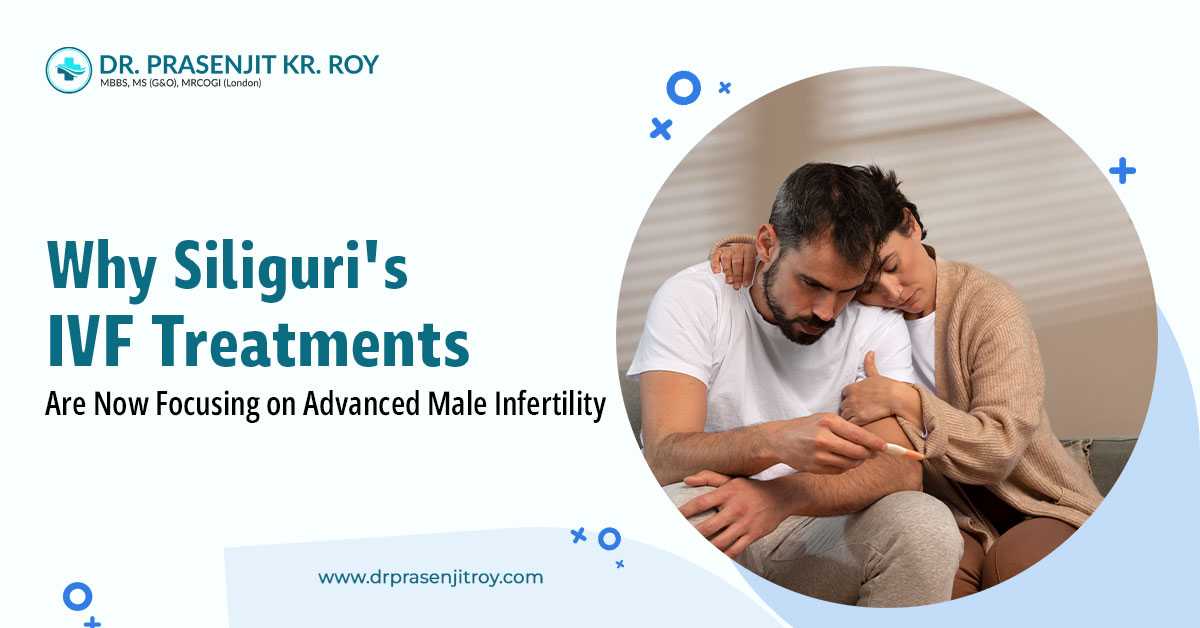IVR or In Vitro Fertilisation is a transformative solution for couples who face fertility struggles. IVF, however, is a complex procedure that uses Assisted Reproductive Technology to bring a new life into the world through a laboratory setting. This process is a boon to infertility, but several factors like age, medical conditions, and lifestyle play a significant role in determining the outcome of the process.
The couples who are considering IVF in Siliguri should know about the potential complications that might occur. This knowledge will help in setting a real expectation, thus the success rate will increase. With appropriate preparation and care, the complications that are usually faced can be handled effectively.
1. Age of the Woman
The age of the woman plays an important role in deciding the success rate of IVF. Women have a limited number of eggs in each ovary, as well as a natural process of ovarian ageing takes place. Fertility usually decreases with age, especially after 35, because the quality and number of eggs decline. This lowers the likelihood of fertilisation and the risk of miscarriage. Women in their 30s or early 40s can still succeed at IVF but may require further medical intervention or egg donation.
The couples who are aiming for pregnancy through IVF should reserve an early appointment with a fertility expert in Siliguri. The experts will assist in ascertaining the ideal course of action depending on age and overall fertility status.
2. Quality of the Ova and Sperms
The egg and sperm quality are key to forming a healthy embryo. Eggs of poor quality can lead to abnormal embryos, and low-motility sperm or poor-quality sperm will not be capable of fertilising the egg successfully. Smoking, stress, excessive alcohol intake, and environmental exposure can all impact reproductive cell quality. The diagnostic tests performed at the fertility clinics allow proper analysis of the quality of the eggs and sperm. Incorporating a good diet, preventing smoking and indulging in physical activities to enhance the likelihood of success of fertilisation and development of a healthy embryo.
3. Uterine or Endometrial Conditions
Problems associated with the uterus or the lining of the endometrium can halt pregnancy even when embryos are absolutely fine. Such situations may include fibroids, endometriosis, and polyps, which can lead to failure in the implantation of the embryo. Most of these issues have no visible symptoms and are picked up only during fertility assessments. IVF centres in Siliguri employ sophisticated imaging technologies and procedures such as hysteroscopy to detect and correct such conditions before embryo transfer, thereby creating a more conducive environment for pregnancy.
4. Health conditions
Chronic diseases, such as thyroid disease, diabetes, PCOS, and hypertension, can hamper the hormonal balance required for success in the IVF procedure. These diseases are likely to cause disturbances in ovulation, embryogenesis, and even present an increased risk for complications during pregnancy. It is necessary for couples approaching the IVF process to have strong ties with healthcare providers to cope with the problems beforehand as well as during the process. Adequate medical monitoring and an individualised strategy can significantly help increase the probability of a positive outcome.
5. Mental Health and Stress
The uncertainty, time investment, and cost involved in IVF can result in extensive worry and anxiety. Excessive emotional distress can also influence hormone levels, which may affect ovulation and embryo implantation. Most of the centres providing Fertility clinics in Siliguri are now including counselling and mental support within their programs. Taking care of your emotional well-being is reassuring and allows the medical treatment to function better.
6. Lifestyle Habits
Poor sleep quality, physical inactivity, diet that is not healthy, smoking, and excessive consumption of caffeine can all adversely affect fertility. Healthy lifestyle modifications before initiating IVF can enhance hormone balance, quality of the egg, and reproductive function in general. Initiating these modifications at least three to six months before starting treatment allows the body to respond well to the changes.
7. Genetics and Quality of the Embryo
Even healthy embryos can contain chromosomal defects that keep them from implanting successfully or cause miscarriage. This is particularly prevalent in older women or those who have seen numerous cycles of IVF failure. Preimplantation Genetic Testing (PGT)may be done to select for genetically sound embryos before transfer. Not all patients need PGT, but it can be an invaluable resource for selecting for some couples. Siliguri fertility experts will assist in deciding if genetic screening is necessary, depending on your situation.
Final Thoughts
For those seeking IVF in Siliguri, selecting a clinic that has both cutting-edge technology and empathetic care can be the key to success. By being well-informed and proactive, you provide yourself with the greatest possible hope of making hope real.








